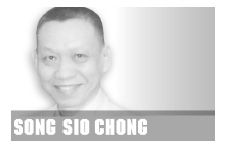What's wrong with the case against Liaison Office?
Updated: 2010-12-30 06:48
(HK Edition)
|
|||||||||

On December 20, Eastern magistrate Anthony Yuen Wai-ming dismissed a case against six protesters who entered the Liaison Office of the Central Government and scuffled with security guards on Christmas Day last year.
The judgment hasn't been posted yet on the Hong Kong Judiciary website to enable interested readers to know why the protesters have been acquitted. According to the media, the reason is twofold. One is the inability of witness Mr Liang Xiong, who heads the Liaison Office's administration and the finance department, to prove that the office is a private place. The other "reason" is the failure of the prosecutor to prove beyond reasonable doubt that "the acts of six defendants had caused disruption of social harmony."
I believe that these two "reasons" are not closely related to the charge of "unlawful assembly" under Section 18(1) of Public Order Ordinance.
The said Section stipulates that "When three or more persons, assembled together, conduct themselves in a disorderly, intimidating, insulting or provocative manner intended or likely to cause any person reasonably to fear that the persons so assembled will commit a breach of the peace, or will by such conduct provoke other persons to commit a breach of the peace, they are an unlawful assembly." It is clear that the ingredients of this offense are:
(1) There shall be three or more persons assembled together;
(2) Their conduct shall be in a disorderly, insulting or provocative manner;
(3) They intend or likely to cause any person reasonably to fear they will commit a breach of the peace or provoke other persons to commit a breach of peace.
Obviously, the place where the offense can be committed is not mentioned. It can be either private or public, or any other types of closed areas. That is to say, "unlawful assembly" as provided in Section 18(1) of the said Ordinance can occur not only in private clubs or commercial buildings, but also in courtrooms, or LegCo meeting room, or markets, theaters, churches and many others. It may happen in government bureaus which normally do not receive or entertain a visitor without appointment, or various governmental departments and offices. It is rather peculiar and perhaps misleading why Mr Liang is called to testify whether the Liaison Office is a private building or not. Why doesn't the magistrate give proper direction in such a situation?
Obviously again, "unlawful assembly" is something which may "cause public reasonable fear of disruption of social harmony" as the magistrate had put it, but it is not limited to public. The original phrases of the Ordinance refer to "any person reasonably to fear". Any person may mean a person inside the Liaison Office, or a bystander. The "person" so mentioned may not necessarily be plural and maybe singular. If Mr Liang happened to be there when the unlawful assembly happened, he would be an appropriate witness, or otherwise a more suitable person should be required to testify on whether he or she had felt a feeling of fear of " breach of peace" by the conduct of the six protesters. It is really surprising that the prosecutor failed to understand the nature and components of the offense.
In R v Howell (1982), it is defined that "a breach of peace" is committed "when harm is done or is likely to be done to a person or, in his presence, to his property or a person is put in fear of being harmed through an assault, an affray, a riot, unlawful assembly or other disturbance". From the wording of the judge, it can also be realized the "unlawful assembly" may cause not only material harm, but also spiritual fear. Although I do not know whether subjective or objective test would be conducted to verify the spiritual fear, I am rather certain that the magistrate failed to direct the witness to testify in this respect.
The case reminds me of two Chinese proverbs: "to climb a tree to find a fish" and "to cover one's eyes and try to catch sparrows." Going by what has been reported in the media, it is clear that the prosecution process was reduced to a self-deceiving exercise. Why? Perhaps both the judge and the prosecutor showed sympathy to the defendants who had protested against the jailing of Liu Xiaobo, and who disrespect the Central Government and its Liaison Office, and have complete ignorance of Chinese law and legal system, or perhaps they are ignorant of Hong Kong law themselves.
The author is a current affairs commentator.
(HK Edition 12/30/2010 page2)